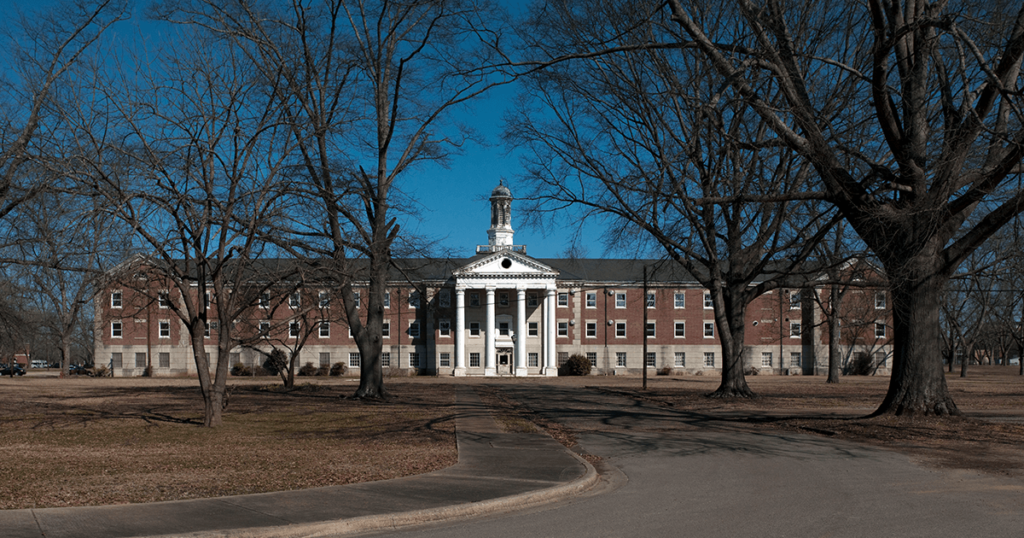
When I was growing up in Alabama, my father used to drive us from Birmingham to Tuscaloosa to visit Grandfather Russell, my mother’s father. He lived in an enormous white building, three or four stories high, with white columns, white porticos, and a white dome and cupola.
I thought this building was our “old home place.” But we never went inside, not even my grandmother, who lived with us in Birmingham at the time. Instead, Grandfather Russell would meet us at a picnic table beneath the trees out front.
I’d toss acorns to the squirrels while I listened to the adults talk among themselves. At some point, I found out that the building was not my grandfather’s home, but Bryce Hospital, which had opened in 1861 as the Alabama State Hospital for the Insane.
In its heyday, the hospital housed more than 5,000 patients, and at one time, it was rated the worst mental hospital in the United States.
Grandfather Russell died there of syphilis. He had been a private eye with his own company, the Russell Bureau of Investigation. One of my mother’s cousins was his secretary and only employee.
Much of Grandfather Russell’s time was spent on trains, and my mother and grandmother once tracked him down in Chattanooga, where he was keeping another woman. Perhaps he had picked up the syphilis from her.
Grandfather Russell was but one of our family members who spent time at Bryce. My father’s oldest sister died of cancer there. She’d been sent to the hospital for violently attacking her mother and a repairman who’d been dispatched to their house.
An uncle, not blood related, but a man I much loved and admired, was also a patient there. A former minister, he would later die having intentionally electrocuted himself while listening to a record of George Beverly Shea singing “How Great Thou Art.”
And then there was the younger of my two older brothers. He spent some time at Bryce after coming back from stateside service in the Army terribly changed.
I was only 10 when my father asked me to pretend that I didn’t notice my brother’s peculiar and frightening behavior.
I loved my father more than anyone else on earth, but for years, I nursed a minor resentment about having to pretend that I didn’t notice my brother’s tendency for unprovoked violence.
My brother and I grew to have a relationship, though, that I don’t think he could have had with anyone else. We would watch Auburn football games on television, lift weights at the downtown YMCA, and play Par 3 golf together, although I was terrible at it.
After the rest of our nuclear family died, I brought my brother from Alabama to Texas, and there I could honestly tell him how much I loved him, because, thanks to my father, I had learned to do it in spite of myself.

